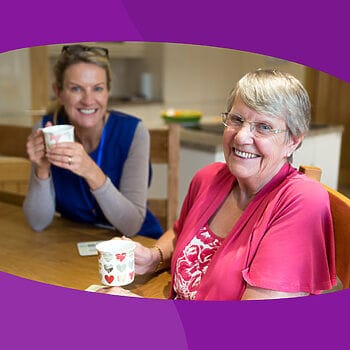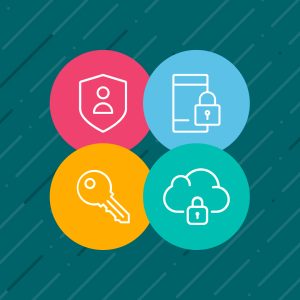It’s World Mental Health Day on October 10. And to mark this we talked to our founder and Director, Josh Hough about supporting employees with mental health issues and about how vulnerable staff have been instrumental to the success of CareLineLive.
“Some of my best employees are neurodiverse. If you support them, they can work wonders,” said Josh.
CareLineLive has grown rapidly since it was founded just over 10 years ago and recently received a major investment from a US private equity firm.
For Josh, that success would not have been possible without neurodiverse staff. One of them is Sales Development Representative Jess Davies, 31, a who lives with obsessive-compulsive disorder (OCD) and anxiety. Jess says that her mental health condition gives her an edge at work.
“My OCD is a mix of perfectionism, ‘just right’ compulsions and contamination fears,” she said. “But it also makes me incredibly organised. Every piece of intel from a client goes into our CRM. If someone mentions they have a dog or are getting married, I remember. It’s about making people feel seen and that builds trust.”
Jess’ drive has a flipside. At university, she rewrote her dissertation three times. She scored highly but paid for it with exhaustion and sleepless nights. In sales, the pressure to perform can heighten obsessive thoughts. “Fear of failure still drives me, sometimes too much,” she admits.
Jess finds that a supportive environment is essential. At CareLineLive, she has access to a mental health first aider, Monicka, who regularly checks in. After a serious flare-up last year, Monicka arranged therapy.
“There’s constant feedback and reassurance from my manager. OCD can make you feel like you’re underperforming, even when you’re doing well. That communication helps me stay grounded.”
Even industry events, once overwhelming, have become manageable. “Buses are a challenge – confined spaces, no seatbelts and full of germs. Now I travel the day before and I get a full itinerary. If I need to step out or find a quiet space, I can.”
Jess also benefits from working from home, which she say has been transformative. “In an office, you’re exposed to noise, germs and constant scrutiny. At home, I can take a break, reset and no one even notices.”
The theme of this year’s Mental Health Day is Overwhelm: When global events and relentless bad news become too much. Hough believes this topic is relevant to all of us.
“Anyone can feel a sense of overwhelm in today’s society,” says Josh. “It’s not just people who are neurodiverse or regarded as vulnerable. But if you look after people and treat them as you’d like to be treated when you’re struggling, they reward you.
“Jess is a brilliant example of how strengths often come packaged with challenges. With the right adjustments, people with OCD, autism or anxiety can thrive in tech and sales,” Hough said.
Josh himself was born with a rare genetic condition called Minicore Myopathy and spent much of his early life in a wheelchair.
“Many people didn’t think I would have a career, let alone run a successful business. I’ve learned from personal experience not to underestimate what people are capable of. If there’s any message I’d give on World Mental Health Day, it’s this: support your staff and they will support you.”




